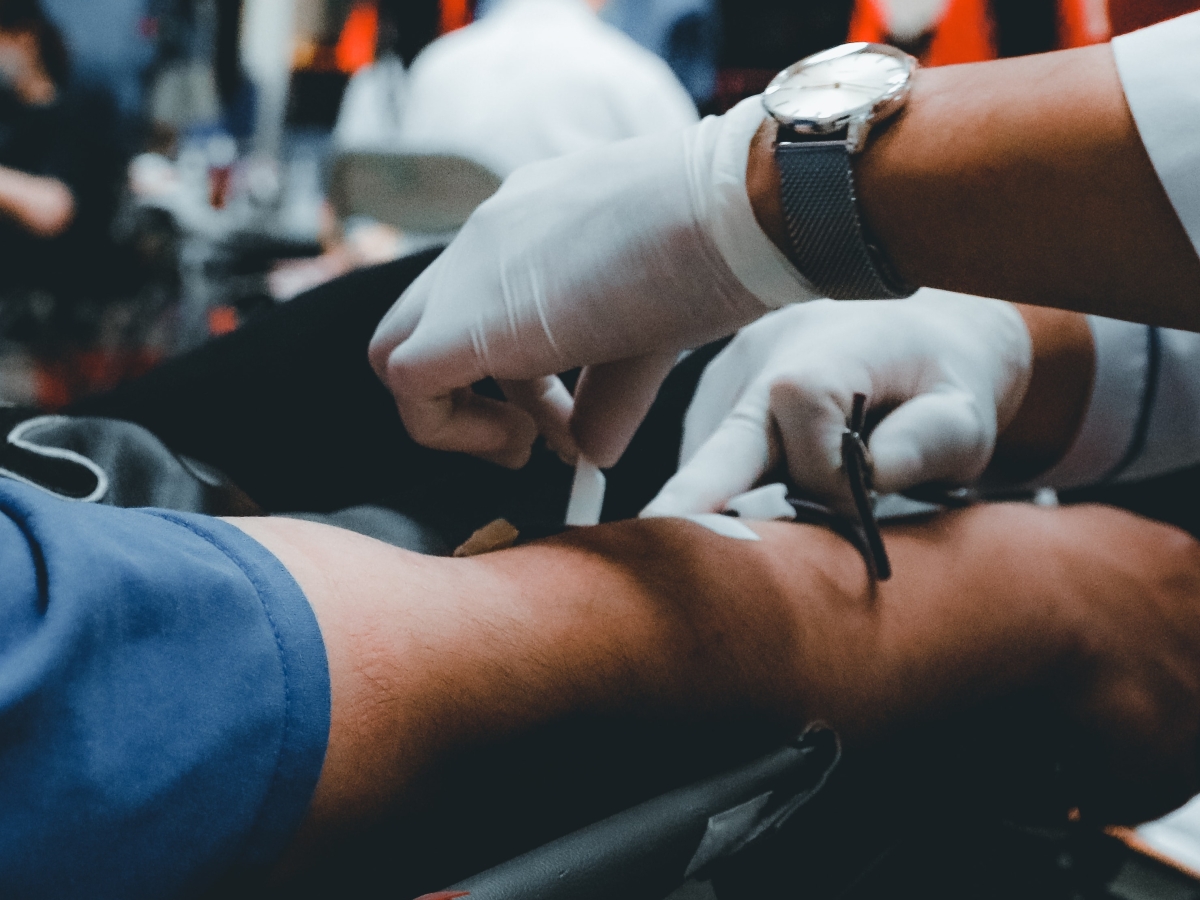
Well, it will probably come to you as no surprise, but we always need to keep moving. Let me be clear; I am not suggesting here to become fidgety, but to avoid remaining stationary for extended periods. The benefits of an active lifestyle have been promoted for many years now. I actually cannot remember a time when the benefits were unmentioned by the media. Nowadays, instead of the mention of being active, we hear another word, workouts. However, even if the principle stays the same, people can seem a little confused when we ask them to differentiate both. The first, staying active, essentially refers to remaining engaged with movement as much as possible; the second, workouts, often mean the accomplishments of strenuous activity, exercise, or work. Where one somewhat suggests a life commitment, the other one mostly hints at something more intense and sporadic. Now, one question still remains: from which one can we genuinely reap the most benefits?
There are no easy ways to answer this question. The most beneficial might, in truth, be a mix of both. I am decidedly already putting all of my eggs in that basket. I would say that I started adopting this approach very gradually. I must say that, at first, adhering to any physical activity was difficult. Then, suddenly, scheduling a walk during my day became much easier, and working out began to grow on me. Unfortunately, considerable change is sometimes our worst enemy when trying to establish a new habit. In my case, moving from Montreal to Sherbrooke (both in Québec, Ca) was enough to put a wrench in my newly set lifestyle. Even though the Eastern Townships is positively heavenly for its scenery and many trails, finding time to walk seemed once again challenging. Working out in our now reduced-size apartment was becoming somewhat challenging. Now a month and a half later, I am nearly finding myself having to start again from scratch, but I keep wondering if this whole thing is worth pursuing if I keep on ‘failing.’ And my verdict remains yes. The pursuit should never stop if we want to be healthy.
It is probably more difficult to find a spot for both types of activities in your schedule, but it is worth considering. Whereas working out can be very profitable for your overall health, maintaining physical activity, aka staying active, might be the only way to retain the procured perks. If we listen carefully, that is indeed what our body is trying to communicate. Our body not only desires to work hard, but it also needs consistency. Our body will adjust with the life we give it. If we stay static -like remaining inside, on our computer all day, and eating junk food- it is only natural that our metabolism begins slowing down and that we start storing our unburnt fat and glucose. If, by contrast, we change our lifestyle to reflect a more active baseline, our body will naturally increase its metabolism to meet our increased demand for energy. However, this change won’t occur overnight. Changes require a whole logistical switch in the body, and our system doesn’t like to switch things around. As we often say, our body is pretty stubborn. If the body can survive on the current arrangement, then it won’t change.

In other words, if we plan for a more healthy way of life, then sticking to a 30-day physical challenge won’t do the trick. Yes! You will most definitely lose weight, but your metabolism will most certainly remain the way it always was. For the whole month, you might notice some decent changes to your health. Unfortunately, none of them may persist if you don’t pursue a similar level of activity. So, my advice is to work hard; still, you must remember to keep it light enough to retain the desire to do it over and over again.
Apart from weight loss being an apparent and very well-supported argument to encourage working out, there are many other advantages. So much so that some pharmaceutical companies are currently looking into ways to develop a pill that could recreate the effect of working out while staying largely inactive. This strategy is regarded as potentially misleading since the outcomes of workouts are complicated and multifaceted. Working out indeed triggers a broad cascade of effects that affect more than one physiological system, all of which can interact with one another. Thus, believing that one medication could activate all pathways and produce all the same effects at once is probably fickle. Another approach would be to create a drug that could promote exercise. One difficulty that most people face when commencing a new workout plan is a lingering struggle. This persistent effort, which is very laborious, is often enough to discourage people from pursuing any activity. Now, imagine that a pill could resolve this obstacle. As a new workout beginner, you would already have a decent amount of stamina that could alleviate some of the struggles we typically feel. Then, you certainly could see yourself persisting with the new plan sketched up for you, no? And that is absolutely what a team of scientists is trying to accomplish.

Finding ways to create a more active population is not a goal to merely keep in mind. It is imperative. Working out has been shown to challenge nearly all organs in our body; subsequently, stimulating growth and repair. The challenge faced by our body during a workout session is changing more in our bodies than we may easily list. It is not often clear if all benefits stem directly from working out or if one of them might be responsible for the many. It would be pretty reasonable to suppose that losing weight might be the change that leads to the reduced risk of developing many illnesses. However, some studies showed that the impact of workouts on our overall health stems from more than weight loss. The benefits seemed to come from the activity itself first.

We can observe some benefits earlier than others. As often mentioned now, weight loss is one of the most apparent changes we can notice and results from an energy/calorie deficit. As a general rule of thumb, the more energy we spend and the less food we consume, the greater this deficit becomes. Whenever our bodies detect that we are spending more energy than can be produced by our food consumption, the more our bodies will rely on the content of our fat cells to supply the additional fuel needed to meet our increased demand.

A reduced body fat percentage means a decreased risk for our body to deposit fat -visceral fat- around our heart and other vital organs. This effect immediately represents a lower risk of heart diseases, an improved functioning of the pancreas, and preservation of our mental acuity as we age. However, weight loss alone cannot explain the entire picture. Workouts also have their own arsenal responsible for cardioprotection, pancreas protection and neuroprotection. By increasing our blood pressure, we create acute stress on the body that has proven itself beneficial for protecting the organs it supplies. Also, strenuous activities provide our body with acute mechanical stress that can strengthen our muscles and our bones and reduce the risk of falls later on in our lives.
Working out also improves your mood by releasing some good ol’ endorphins. It also helps regulate stress hormones levels, which ensures that you keep a healthy mental state. Along with relaxing your mind, exhausting our bodies before going to bed is also a foolproof way to gather a good night’s sleep. The list of benefits here is not exhaustive. Some studies are even suggesting that constant physical activities, along with working out, significantly reduce your risk of developing some cancers, including colon, breast, uterine and lung cancer. And if you’re looking to maintain a healthy sex life throughout your life, you may regard your demanding physical activities as your holy grail. For men, regular physical activity would come with a lowered risk of developing erectile dysfunction, and for women, it might be a sexual mood booster.

Many other advantageous changes are happening in our bodies when we decide to adopt a more active lifestyle, along with workouts, probably more than what I have just mentioned. And if you are looking into a way to cheat death for longer, you might consider implementing these few changes to your life habits. Personally, I know that I want to prolong my life for as long as possible while remaining healthy. For this reason, I will keep on trying to push away my laziness and motivate myself to always do more. If you think that workouts are too far of a stretch for you, then you might be pleased to realize that working out does not necessarily involve weightlifting. It could be sprinting, playing a sport, rock climbing or any other moderately challenging activities. Just remember to find one that aligns with your own interest, and you will be setting yourselves up for success.
I thank you infinitely for reading this post and if you would like to know more about the mysteries that surround us, please join my subscription list to keep up with my newest content. If you have any questions, please add them to the comment section and I’ll make sure to answer as soon as humanly possible. ![]()
Get new content delivered directly to your inbox.
Bring Up Biophilia—What makes us particularly attracted to nature
No one can dismiss the amazing feeling we get after spending some time in nature. We instantly feel relaxed and reinvigorated. Some might attribute this effect to time spent far away from work, and even though they could be correct, it is not the whole picture. Biophilia is a relatively new concept that brought the…
Bring Up Blood—How our oxygen gets carried throughout our body
Good evening my dearest followers,
Please, take a moment to enjoy this excerpt for my newest post (Bring Up Blood).
We could most certainly not live without blood. It is absolutely essential for the survival of our most distant limbs and organs. Even though almost all of our respiration is thanks to our respiratory organs,…
Bring Up Artificial Intelligence—What can it do for us, or more precisely what it can’t
We keep hearing on the news of the many achievements made by Artificial Intelligence. From winning at Chess to winning at Jeopardy! against its longest streak-winner, AIs seem to truly outdo themselves. However, nobody can agree if those machines truly hold something we can call Artificial Intelligence. They can’t do more than the task they…



















